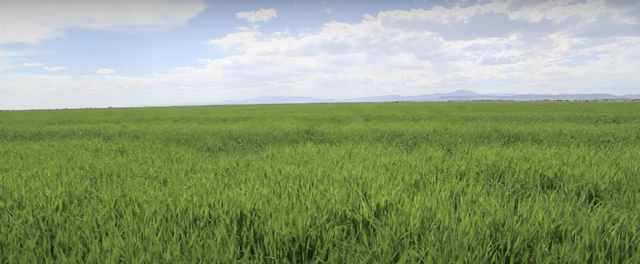Is BarleyLife Gluten Free?

Answer: There is a common misconception that young barley grass is not gluten-free, but indeed it is free of gluten. The grass is cut at a tender, young age, which causes it to be gluten-free. However, when grasses are allowed to mature, they become a grain and grains do contain gluten.
Here is more:
"The grass itself is gluten-free. However we harvest millions of pounds of barley grass every year, thus making it extremely difficult to state that BarleyLife is gluten-free. As the grass grows taller and taller, the grain head slowly follows the stem to the top. We cut our grass when it is very short, to limit the contamination of the grain head. However, it is possible to accidentally harvest it. We test every lot of bulk BarleyLife for gluten and many lots test at less than 5 ppm. At the same time, we can also receive tests that do detect gluten. I am very skeptical when another company claims their grass product is gluten-free. Are they testing every lot number? It is likely to contain gluten, by just the nature of the plant. Many AIM Members who suffer from gluten intolerance have taken BarleyLife for years, but see no negative impacts." - Biologist Phillip Jermann from The AIM Companies
Official Letter From The AIM Companies
"Gluten is a natural protein most commonly found in the mature grain portion of plants such as wheat, barley, oats and rye. Although we harvest our barley grass long before it produces a visible grain, the pre-emergence of the embryonic grain begins at ground level. It migrates upward throughout the mid-to-late growth cycle of the barley plant.
Over the past ten years, we have randomly sampled a few bottles of BarleyLife. And each year, we have not received a positive gluten test result.
With the explosion of gluten-free foods in the marketplace, this year we decided it was time to begin testing our entire annual production of barley for the absence of gluten. Through this testing regiment, we identified 20 percent of our barley grass juice powder to contain 20 - 80 PPM of gluten.
Anyone who is celiac, sprue or gluten intolerant should avoid foods that contain gluten. Typically, individuals who are sensitive to gluten should avoid foods that contain more than 20 PPM.
A typical 100 gram serving of a food will contain 2,000 mcg of gluten, with a gluten test result of 20 PPM. For comparison, a slice of whole wheat bread contains 4,800,000 mcg of gluten. A serving of BarleyLife that contains 20 PPM of gluten will provide 80 mcg - or 60,000 times less gluten than a slice of whole wheat bread.
Initially we planned to create a gluten-free SKU (stock-keeping unit ) of BarleyLife with the remaining 80 percent of the gluten-free powders. However, while preparing for this transition, we identified the following proposal from the FDA:
"What are examples of food products that would be prohibited from using the term 'gluten-free' in their labeling under the newly proposed FDA labeling rule?
The following are examples of, but are not limited to, foods that would not be able to use the term gluten-free in their labeling:
- Barley
- Common wheat
- Rye
- Spelt
- Kamut
- Triticale
- Farina
- Vital gluten
- Semolina
- Malt vinegar
We are continuing to test all production lots for gluten and are working toward a one hundred percent gluten-free portion of our barley production, even though we will not be able to label the product as such.
Currently there are some green barley, wheat and kamut green juice powders on the market that do promote their powders as gluten-free. These claims will soon be removed from labels or they will likely face FDA scrutiny and investigation."
P.S. Gluten intolerance is now four times more common today than it was in the 1950's. From from The AIM Companies you can experience renewed health with quality, gluten-free nutritional products.
AIM Members with celiac, sprue and gluten intolerance have used BarleyLife® and BarleyLife® Xtra with no negative effects. However, as a consumer, it is ultimately your decision to use these nutritional products.